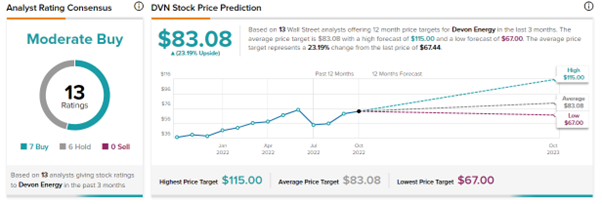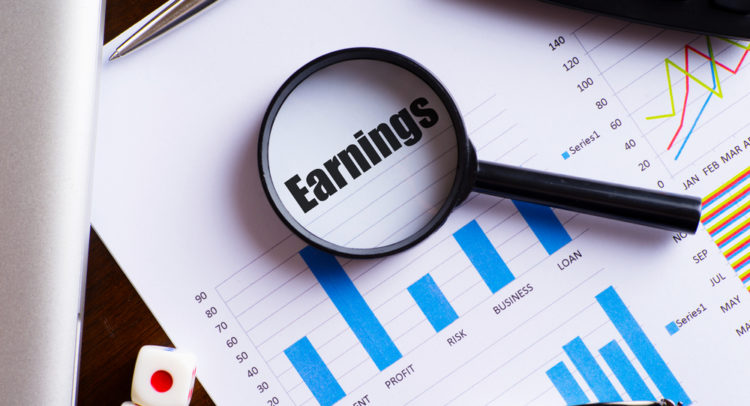Shares of oil and natural gas giant Devon Energy Corporation (NYSE:DVN) plunged 12.8% yesterday following a lower-than-expected forecast for Q4 production output and a 12.9% cut in dividends. Further, the company indicated that the Q4 capital expenditures will be higher than analysts’ expectations.
Elevate Your Investing Strategy:
- Take advantage of TipRanks Premium at 50% off! Unlock powerful investing tools, advanced data, and expert analyst insights to help you invest with confidence.
The company cut its quarterly dividend to $1.35 per share versus the $1.55 paid earlier. The dividend will be payable on December 30 to shareholders on December 12.
On the positive side, adjusted earnings of $2.18 per share surpassed the consensus estimate of $2.12 per share. Further, revenues jumped 56.7% year-over-year to $5.4 billion. The increase in revenues reflects higher production, which rose 1% to 614,000 barrels of oil equivalent (BOE) per day.
Aided by acquisitions, the company raised production guidance for the fourth quarter. The company now forecasts Q4 production to grow 6% year-over-year at the midpoint to 640K-660K boe/day. The increase is aided by additional production of 35K boe/day resulting from the Eagle Ford acquisition.
Is Devon a Good Stock to Buy?
Wall Street analysts are cautiously optimistic about Devon Energy stock and have a Moderate Buy consensus rating, based on seven Buys and seven Holds. Further, DVN stock boasts an average price target of $83.08, which implies 23.19% upside potential from current levels.

Concluding Thoughts
Following OPEC+’s decision to cut oil production by two million barrels a day, U.S. oil and gas companies are under pressure to increase production, while keeping their costs under control. However, there are signs of higher costs from more expensive labor, materials, and equipment due to the impact of inflation.
Investors remain concerned about the impact of higher anticipated capital expenditures on the profitability of the company.
Read full Disclosure
















